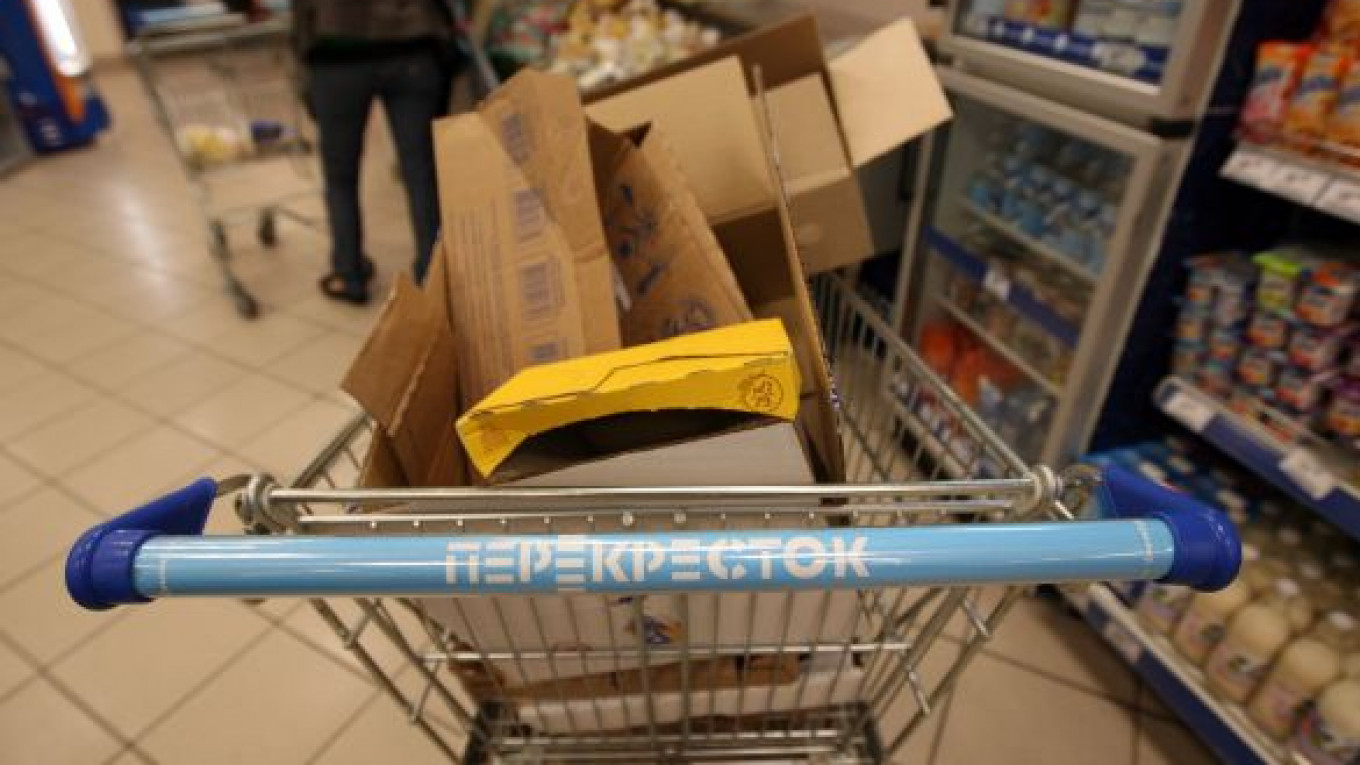Legislation proposed by the Natural Resources and Environment Ministry would oblige manufacturers and importers to pay for processing waste from their products.
Under the amendments to a bill now being considered by the State Duma, producers and importers of consumer goods would have to pay into a fund to cover the costs of processing goods and packaging when they are thrown away.
The fund would be used to finance the renovation of existing waste processing plants and construction of new ones, as well as cleanup of environmental damage caused by waste disposal.
Vedomosti reported last week that the fund would likely be managed by an as-yet-undetermined "national operators association," which will be able to fine organizations that don't enter into a waste-disposal agreement up to 4 percent of their annual revenue.
The bill, which is based on similar European legislation, passed its first reading in the State Duma in October and was debated for the second time Monday.
Reaction from the business community has been lukewarm. In a position paper published last month, the Association of European Businesses cautiously welcomed the new law.
But it also called for a differentiated fee based on the costs of producing various goods and a "sufficiently long transition period," defined as three to five years, for companies to adapt to the system.
Others have been more outspoken. Peter Bobrovsky, vice president for development and public relations at National Container Union, told Vedomosti that Russian businesses could end up paying twice if both the producer of packaging and the company using it are charged for its disposal.
"For example, a producer of sour cream buys jars for which a tax had already been paid and would have to pay a second time," he said.
Others question the incentives the law would create.
"What's the point of a manufacturer adopting innovative technologies, for example biodegradable materials, which are known to be more expensive, or investing in developing recyclable materials, if the charge for waste processing is the same?" asked Yekaterina Astafayeva, chairwoman of Rusbrand, an association of branded goods manufactures.
A Message from The Moscow Times:
Dear readers,
We are facing unprecedented challenges. Russia's Prosecutor General's Office has designated The Moscow Times as an "undesirable" organization, criminalizing our work and putting our staff at risk of prosecution. This follows our earlier unjust labeling as a "foreign agent."
These actions are direct attempts to silence independent journalism in Russia. The authorities claim our work "discredits the decisions of the Russian leadership." We see things differently: we strive to provide accurate, unbiased reporting on Russia.
We, the journalists of The Moscow Times, refuse to be silenced. But to continue our work, we need your help.
Your support, no matter how small, makes a world of difference. If you can, please support us monthly starting from just $2. It's quick to set up, and every contribution makes a significant impact.
By supporting The Moscow Times, you're defending open, independent journalism in the face of repression. Thank you for standing with us.
Remind me later.






